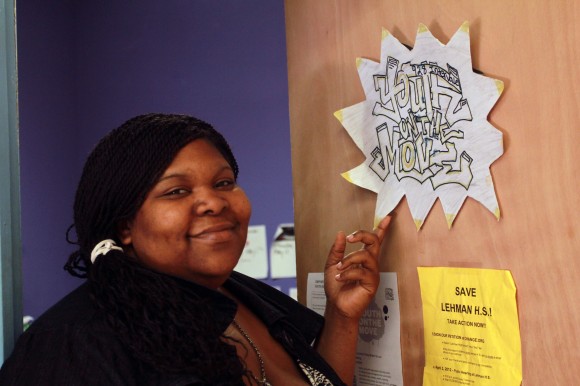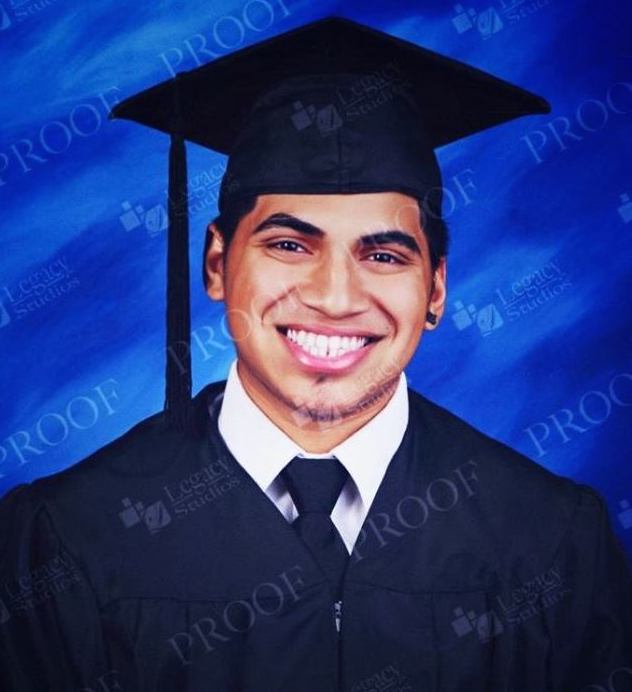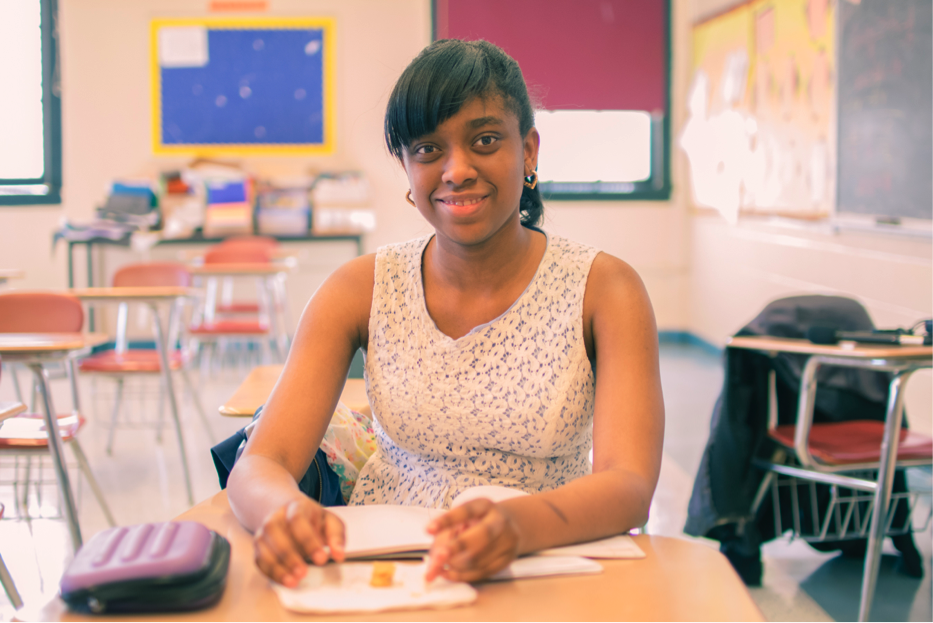
When Akilah Irvin was 13, she and a group of three friends whose parents were members of Mothers on the Move (MOM), a South Bronx nonprofit group, would babysit the younger children of MOM members.
On those evenings, while their parents met to discuss crime and slumlords in their neighborhood of Hunts Point, the girls sat at home watching their temporary charges and chatting about school.
“We were like the Babysitters’ Club,” said Irvin, who still works in the area but now lives in Yonkers.
It’s an apt comparison, because like the characters in Ann M. Martin’s hit pre-teen books, Irvin and her friends were good at making plans and thinking big.
In the process of talking week after week about what bothered them at school — the lack of an auditorium, the budget cuts affecting their after-school programs, and their increasingly crowded classrooms — Irvin and three others decided that if their parents could organize, so could they.
“We said: ‘Hey, maybe we should fight these problems,’” said Irvin, who is now 24. “And we started grant-writing, found local funding. And we hired a youth organizer.”
Irvin almost makes it sound easy, though anyone with experience starting a nonprofit group will attest to the difficulty of finding starter funds. In the end, it took a year for Hunts Point’s own visionary babysitters and budding activists to go from the conception of their idea to the day the organization, Youth on the Move, hired its first staffer. Admittedly, they had help from MOM (in both senses of the word), whose offices they still share.
Ten years later, Irvin herself is the youth organizer, the sole full-time employee at an organization that runs largely on the enthusiasm of local teens. On a Thursday afternoon, she arrived at the office a little after 2 p.m. with a few students from Satellite Academy, a small alternative high school that shares a building with Bronx Regional High on Rev. James A. Polite Avenue. The group of teenage girls headed into a back room of the streetfront suite, a spartan but welcoming locale across from Rainey Park.
The group sat down to a discussion of big news at their school. The student body had just learned that Satellite would soon be sharing its already small quarters — a single floor above Bronx Regional — with a charter school for youth who have been involved in the juvenile justice system. Irvin has her own concerns about the news, mainly regarding overcrowding and the risk of fights, but she started by asking the students to take out pens and paper and spend three or four minutes jotting down their own feelings.
“If a reporter comes in and asks you what you think, what would you say?” she asked.
It was a typical improvised lesson. Though she prepares her lesson plans every Monday, in reality, Irvin lets the kids’ everyday experiences at school guide the class.
“My kids run me,” she said with a chuckle. And clearly for her, that is the point. From its inception to today, Youth on the Move focuses on educational justice. The problems its young members face are not so different from those that bothered Irvin as a young student: overcrowding, lack of security and lack of resources. But there are a few newer problems, too: schools closing, shrinking, or, in Mayor Michael Bloomberg’s new parlance, being “turned around,” a phrase that immediately raised hackles in the neighborhood, Irvin said.
“The term sounds like something positive, but actually we’re going to lose half our teachers at these schools,” Irvin said. Satellite will undergo this process in the fall.
The students in Irvin’s class, who meet her twice a week as an elective in community organization through their school, learn about how the city makes these decisions. The goal is to think about where education policy comes from and how students can have a bigger say in that process.
Teaching community organizing comes naturally to Irvin, whose baseball cap, t-shirt and jeans are a reminder that she herself is not much older than the youths she coaches.
“I was kind of born into this,” she said. “My family, especially the women in my family, we’re so into community justice.”
Irvin’s mother, April Irvin, and her aunt Cerita Parker are longtime MOM members, and her mother previously worked as a social work aide, finding housing and job openings for homeless people in Florida. Irvin describes Youth on the Move as the “second generation” of MOM, and when she graduated from high school in the Bronx, she again took inspiration from her mother, signing up for two years in the national community service program Americorps.
“I loved it. I miss it,” she said, her voice lighting up at the memory. Irvin learned disaster-preparedness and disaster response in Miami, and helped respond to everything from local house fires to more distant natural disasters. When more than 300,000 people died in the 2010 quake in Haiti, her Americorps team ran a local help center for survivors arriving from the Caribbean country.
But after finishing the program, Irvin decided to return to the Bronx, where she then took up a job at the organization she had helped found.
At a meeting of the Panel for Education Policy in February, mother and daughter sat side by side in the auditorium of Brooklyn Tech High School in Fort Greene, where hundreds of students and teachers protested plans to close 33 schools.
The pair often attend MOM or Youth on the Move actions together, and this issue cuts close to home: Last year, April Irvin returned to school to learn computer skills. Now the school that houses her two-year program, Samuel Gompers on Southern Boulevard, will close before she has a chance to finish the program.
“Last time they closed a program like this, all the students from that place got sent to us, and we’re overcrowded,” said April Irvin. “What will happen if they close ours, too?”
Between Akilah Irvin and her mother sat one of Youth on the Move’s newer members, 18-year-old Cheyenne Lee, a student at Satellite who struggled to stay in high school two years ago while caring for her newborn daughter but is now catching up on coursework and nearing graduation.
Lee and Akilah Irvin wove their way through the crowd toward the podium where speakers addressed the education panel, Lee carrying a single, bright green index card with notes jotted on both sides: What she hoped to tell the panel about her school.
But speakers had to register in advance, and after standing at the front of the auditorium for a while, Lee retreated to her seat, disappointed but not discouraged. After another half hour of watching distressed and angry speakers address the panel, Irvin, her mother and Lee decided to leave.
And then came a moment that Irvin beamed about days later. As they were exiting through the school’s lobby, the trio found a crowd of protestors listening to students speak, using the mic-check technique made popular by Occupy Wall Street protests. Lee pushed toward the center. There, surrounded by reporters, students, teachers and police, she read her index card to an encouraging audience.
“It was this inspiring moment,” Irvin said. “Before, she would speak her mind, but she had a harder time in a public setting with lots of people around. When I saw her, I knew I’m doing the right work.”
The lesson plans that Irvin writes each Monday are all based on this idea: That students are the biggest stakeholders in education and have a right to be heard.
In class, the students finished writing their thoughts about the incoming charter school. After discussing what they felt was unfair, it was time for an exercise of a different sort: Irvin asked the group to imagine that they were the principal of their school, and had just received a boost of funding from the Department of Education. What would they do with it?
If it sounds like wishful thinking, that’s exactly the point. You can’t ask for a better school unless you think about the process of change and improvement, Irvin says.
The students thought for a while and came up with a list of demands that may have reminded Irvin of her evening conversations babysitting for MOM kids a decade earlier. Like her, the students wanted more space, more support and more activities: afterschool programs, tutoring and guidance counselors. And perhaps most basic of all, what Satellite really needs, they said: a better location.



